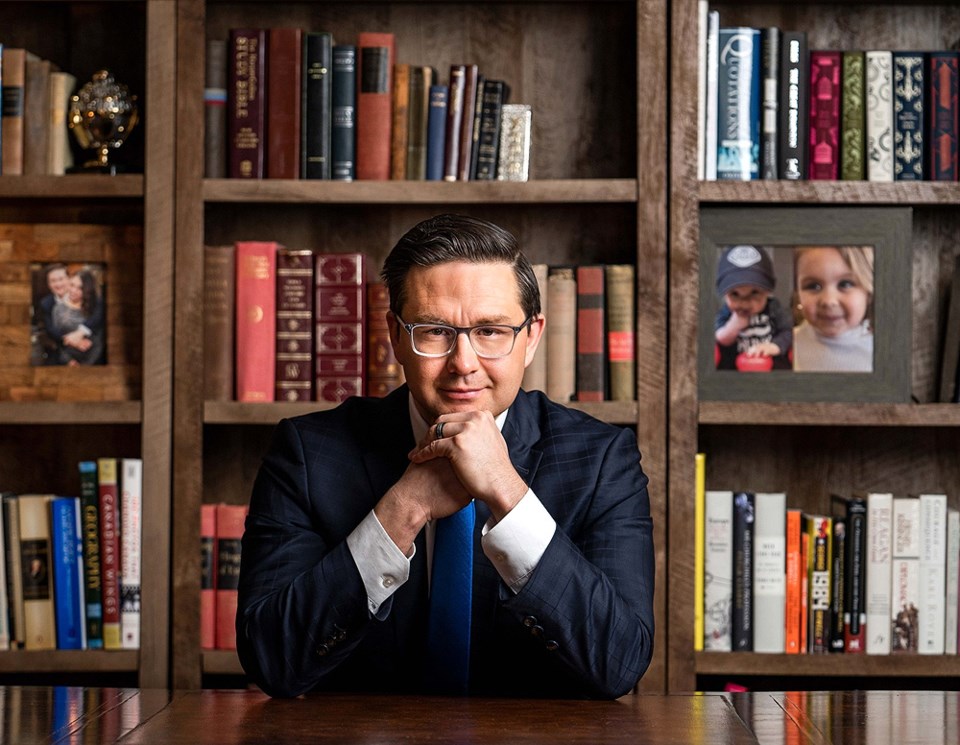Former U.S. Republican President Donald Trump defeated Democratic Vice-President Kamala Harris in last week’s presidential election. Trump secured 312 out of 538 Electoral College votes, the highest total he’s ever received in his three presidential campaigns. For the first time, he is also expected to win the popular vote, likely ending up with just over 50 per cent once all ballots are counted. His victory makes him only the second U.S. president, after Grover Cleveland, to serve non-consecutive terms in the White House.
Considering that Trump had been largely written off by his political opponents, the liberal media and NeverTrumpers several years ago, it was an impressive victory.
Prime Minister Justin Trudeau and the Liberals claim they’re prepared to deal with a second Trump administration. However, this seems doubtful, given that they’ve struggled to lead Canada efficiently and effectively for nearly a decade Unless what they plan to do is keep comparing Trump to Conservative leader Pierre Poilievre, that is.
The Liberals have frequently compared Pierre Poilievre to Donald Trump. During a House of Commons committee investigation into allegations of Chinese interference in the 2021 election, Liberal MP Jennifer O’Connell accused Poilievre’s Conservatives of using “Trump-type tactics” to undermine Canada’s democratic process. Similar comparisons were made during the 2022 Freedom Convoy when some protesters – who may be onside with the Poilievre Conservatives – were seen wearing MAGA hats and carrying Trump signs. At a 2023 town hall with the United Brotherhood of Carpenters in Vaughan, Ontario, Prime Minister Justin Trudeau responded to Poilievre’s comment that “Canada is broken” by saying, “Well, you know what? They tried that down in the United States. Someone who said he was going to fix everything and fed into anger and disconnect, frustration by so many people in the United States. It didn’t leave them any better off.”
The Liberal strategy has continued this year. In one notable example, the Liberals released a short video on social media in January after Trump won the New Hampshire primary, claiming that Poilievre “is ripping a page out of his playbook.” The video referenced the viral clip of the Conservative leader casually eating an apple as he was asked questions by a reporter.
Why is this happening? The Trudeau government is trying everything to stop the political bleeding and collapse in its nationwide popularity. The Conservatives have led in most opinion polls since Poilievre became leader in Sept 2022 – and consistently in double digits for more than a year. For example, a Nov. 1 poll by Nanos Research showed the Conservatives leading 40.3 per cent to the Liberals’ 24.2 per cent. A Nov. 3 poll by Leger placed the Conservatives at 42 to 26 per cent, while a Nov. 5 poll from Abacus Data showed them leading 41 to 22 per cent.
While the Liberals will keep trying to compare Poilievre to Trump, there are clear reasons why this strategy hasn’t worked – and will never work.
Poilievre and Trump aren’t two sides of the same political coin. The former’s political ideology, values, background and policies are entirely different from the latter. The Conservative leader supports small government, low taxes, private enterprise, free markets, trade liberalization – and more. Trump may agree with some of these policies at times, but he also leans toward fair trade, restraints on immigration, economic nationalism, tariffs (as a bargaining chip) and so forth.
Like other right-leaning figures, such as Ontario Premier Doug Ford, former British Prime Minister Boris Johnson, and former Australian Prime Minister Scott Morrison, Poilievre’s style and approach don’t fit the same mould as Trump’s.
What about messaging techniques and populist language?
It’s valid to say that Poilievre has successfully used some ideas and concepts that Trump might also support. He has criticized the Liberals’ handling of the affordability crisis, which he argues has hurt individuals and families across Canada. He’s also called for “big city gatekeepers” to “get out of the way and bring homes to our people” when it comes to home ownership. Poilievre also aims to strengthen ties with workers, stating, “Conservatives, under my leadership, are the workers’ party. We are the party of the working class.”
Then again, it’s also fair to say Ford employed similar messaging techniques and populist language – and he’s used this form of retail politics far longer than the President-elect. Johnson, Morrison and other right-leaning politicians did the same thing, too. It’s a common occurrence in politics.
While Poilievre may use populist tactics to acquire support ahead of the next federal election, this doesn’t mean he aims to become a Canadian version of Trump – and his track record shows he isn’t.
The Trudeau Liberals will likely keep pushing this comparison, hoping it resonates with Canadians. But as polls show, this strategy hasn’t worked so far, and it’s unlikely to succeed.
Instead, Canadians seem to recognize Poilievre as his own political force, one with a different vision that the Liberals would be wise to take seriously.
Michael Taube is a political commentator, Troy Media syndicated columnist and former speechwriter for Prime Minister Stephen Harper. He holds a master’s degree in comparative politics from the London School of Economics, lending academic rigour to his political insights.
The commentaries offered on SaskToday.ca are intended to provide thought-provoking material for our readers. The opinions expressed are those of the authors. Contributors' articles or letters do not necessarily reflect the opinion of any SaskToday.ca staff.




